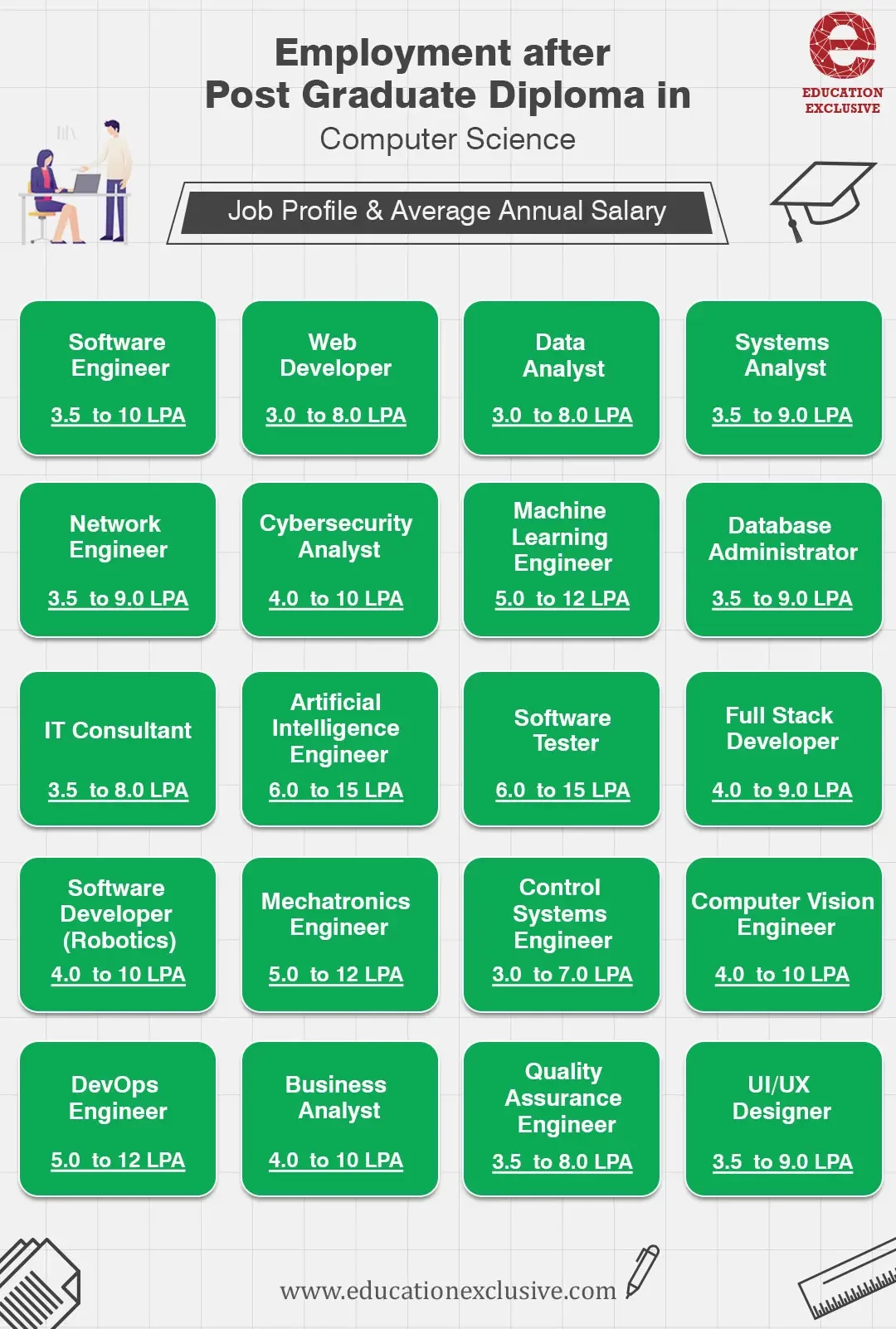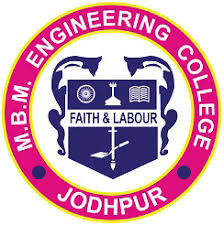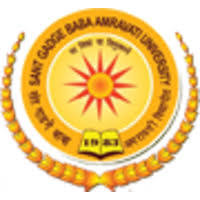Highlights: -
|
Diploma Name |
Post Graduate Diploma in Computer Science |
|
Level |
Postgraduate |
|
Diploma Duration |
1- 2 years |
|
Education mode |
Full time, Distance |
|
Eligibility Criteria |
Graduation in any discipline |
|
Admission process |
Merit base |
|
Fees of the course |
Rs. 2,000 to Rs. 4.00 Lakhs |
Eligibility Criteria: -
- Candidates must complete graduation.
- They must have scored at least 50% marks. However, some colleges may not ask for any minimum percentage.
- Final-year candidates may also apply for admission on a provisional basis.
- Some colleges may also ask for work experience of 1-2 years.
Post Graduate Diploma in Computer Science Syllabus: -
The Post Graduate Diploma in Computer Science syllabus will vary from college to college, but the course aims and subjects shall remain the same; the subject distribution over the syllabus may differ; but the study matter remains consistent. Nevertheless, candidates should check the official website to know the complete syllabus. Here is a general guide to Post Graduate Diploma in Computer Science Syllabus design, as commonly followed by Indian colleges:
|
Semester 1 |
Semester 2 |
|
Fundamentals of Information Technology |
Visual Basics |
|
Programming |
Java |
|
Soft Skills |
DBMS |
|
Software Engineering |
Data Structure & Algorithms |
|
Business Process |
PPM & OB |
|
Oracle |
Projects |
|
Web Programming |
Practical Work |
|
Practical Work |
- |
Next step after Post Graduate Diploma in Computer Science: -
If a person wants to do further studies in Post Graduate Diploma in Computer Science to improve his/her knowledge and skills than he/she can go for the following courses: -
- Data Science and Machine Learning: Certificate courses in Data Science and machine learning can help you better comprehend complex algorithms, statistical approaches, and machine learning models. Look for programs that teach deep learning, natural language processing, and big data analytics.
- Cybersecurity: As Cybersecurity becomes more important, taking a certificate course can help you learn more about security principles, Cryptography, Network Security, and Ethical Hacking tactics.
- Cloud Computing: Certificate courses in cloud computing offer a comprehensive learning experience, helping you develop skills in creating, implementing, and managing cloud-based systems. Look for programs that cover prominent cloud systems such as Amazon Web Services, Azure, and Google Cloud to ensure you're getting the most out of your learning journey.
- Blockchain Technology: Blockchain is gaining traction in various Industries. Certificate courses in blockchain technology can teach you about distributed Ledger Technology, smart contracts, and Cryptocurrency.
- Artificial Intelligence: Certificate courses in Artificial Intelligence can cover important areas, including Computer Vision, Reinforcement Learning, and AI ethics.
- Software Development: If you're interested in Software Development, consider certificate courses that cover specific programming languages, frameworks, or processes, such as Agile or DevOps.
- Networking: Certificate courses in networking can provide detailed knowledge of network design, protocols, and security. Wireless networking and network administration are examples of specialised areas.
- UX/UI Design: Certificate programs in this profession can teach you about usability concepts, design tools, and user research approaches.
- Mobile App Development: Certificate courses in mobile app development can provide you with the knowledge you need to create applications for iOS, Android, and cross-platform settings.
- Project Management: Certificate courses in Project Management can be helpful if you want to oversee software development projects or advance into a management position. Look for programs that teach project management approaches such as PMP or Agile.

FAQs
- What is the difference between a post-graduate diploma and Masters in Engineering?
The key difference between postgraduate diploma in engineering and Masters in engineering is that PGD in Engineering is a shorter duration course and has only 120 credits, whereas a masters in engineering is a full-time course with 180 credits.
- What is the average salary of a PGD in Computer Science graduate?
Various engineering specialisations can be chosen by the PGD Engineering graduate based on their abilities and interests. The average salary of a Computer Science in India is Rs. 4.4 LPA.
- Is PGDCA a master's degree?
No, it is not a master degree. It is a 1 year diploma degree in computer application.
- What is the average course fees of a PGD in Engineering course?
The average course fees of a PGD in Engineering course depend on the type of institute, its location, and the status and prestige of the institute. The average fees of the PGD Engineering course ranges from Rs. 20,000 to Rs. 4.0 Lakhs.
- What are the top companies that employ the Post Graduate Diploma Computer Science graduates in India?
The top companies that employ the Post Graduate Diploma Computer Science graduates in India are HCL, Google, Capgemini, Wipro, Microsoft, Deloitte, IBM, Central Government Organisations, and Facebook.
Other specialisation in Post Graduate Diploma in Engineering:
Post Graduate Diploma in Civil Engineering, Post Graduate Diploma in Electrical Engineering.




